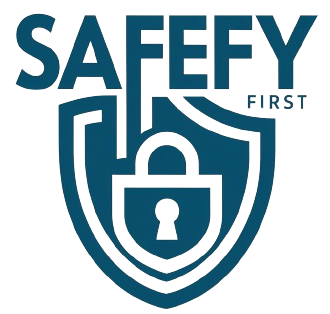
Hello, fellow parents! As an expert in internet safety, I understand the importance of keeping our children safe in the digital world. The internet is an amazing place full of opportunities and knowledge, but it also has its risks. That’s why it’s crucial for us to take steps to protect our kids online.
I understand the challenges that parents face in this rapidly evolving digital landscape. It can be overwhelming to keep up with the latest trends, apps, and online platforms. But fear not, for I am here to guide you through this journey of ensuring internet safety for your children.
In this comprehensive guide, I will share with you the most effective strategies and practical tips to protect your children from the dangers that lurk in the digital realm. Together, we will empower our children to become responsible digital citizens who can harness the power of the internet while staying safe.
Throughout this blog post, I will delve into the importance of internet safety for kids and the potential risks they may encounter. We will explore the concept of cyberbullying and its detrimental effects on children’s mental health and well-being. But fear not, for I will not leave you empty-handed. I will equip you with the knowledge and tools to identify the signs of cyberbullying and take appropriate action.
Why is Internet Safety Important for Kids?
The internet can be a wonderful resource for learning, connecting with others, and having fun. However, it also exposes our children to potential dangers. Cyberbullying, where kids are harassed or intimidated online, is a serious concern. There are also online predators who may try to harm our children. By prioritizing internet safety, we can protect our kids from these risks and empower them to make responsible choices online.
Understanding Cyberbullying
Cyberbullying is when someone uses technology to hurt, harass, or embarrass others. It can happen through social media, messaging apps, or online gaming. Children are especially vulnerable to cyberbullying because they may not fully understand its consequences or how to handle it. It’s important for us to recognize the signs of cyberbullying and take action to address and prevent it.
Tips for Ensuring Internet Safety for Kids
Open Communication: Talk to your children about their online activities and encourage them to share any concerns or experiences they have. Let them know that you’re there to support and guide them.
Set Clear Boundaries: Establish rules for internet use, such as time limits and appropriate websites or apps. Regularly review and update these boundaries as your children grow and their needs change.
Teach Online Privacy: Help your children understand the importance of keeping personal information private. Teach them not to share their full names, addresses, phone numbers, or passwords with strangers or on unsecured websites.
Monitor Online Activities: Keep an eye on what your children are doing online without invading their privacy. Use parental control software and privacy settings to block inappropriate content and monitor their social media interactions.
Teach Critical Thinking: Teach your children to think critically when they come across information online. Encourage them to verify sources, question suspicious messages, and think before sharing personal information or engaging in online conversations.
Frequently Asked Questions (FAQ)
Q: How can I tell if my child is being cyberbullied?
- A: Look out for signs like sudden changes in behavior, withdrawal from social activities, reluctance to use electronic devices, or emotional distress. Keep communication open and be vigilant for any unusual behavior.
Q: How can I protect my child from online predators?
- A: Teach your child not to share personal information with strangers online. Explain the risks of interacting with unfamiliar people and encourage them to report any suspicious behavior to a trusted adult.
Q: Are there resources available to help parents educate their children about internet safety?
- A: Yes, there are many online resources like educational websites, videos, and interactive games that teach children about internet safety. You can also find workshops and seminars for parents and children to learn together.
Q: How can I monitor my child’s online activities without invading their privacy?
- A: Use parental control software that allows you to monitor and restrict your child’s online activities. Talk to your child about the importance of online safety and explain that monitoring is done out of concern for their well-being.
Q: What should I do if my child has already shared personal information online?
- A: Stay calm and reassure your child that you’re there to help. Teach them about the importance of not sharing personal information and guide them on how to protect themselves online. Contact the appropriate authorities if necessary
Advocating for Stronger Internet Safety Measures
As we conclude this discussion on internet safety for kids, it is clear that the responsibility lies not only with parents but also with policymakers, educators, and technology companies. We must advocate for stronger internet safety measures, including stricter regulations on social media platforms, improved education on digital citizenship in schools, and enhanced parental control features on devices and apps. By working together, we can create a safer digital landscape for our children to thrive in.
Write to your local representatives, school boards, and technology companies, urging them to prioritize internet safety for kids. Support organizations and initiatives that promote digital literacy and advocate for stronger internet safety measures.if you like content share with your loved ones and make sure read the related contents
